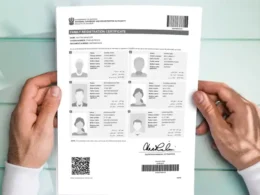Pakistan’s IT Exports Hit Record $3.8 Billion in FY25
Pakistan’s IT exports surged to a record $3.8 billion in FY25, showing an 18% year-over-year increase. This growth underscores the sector’s rising role in the national economy amid strong global demand for digital services.
Freelance and remote work drove the boost, growing 90% to $779 million. This jump highlights Pakistan’s expanding digital talent and growing competitiveness in IT-enable services.
However, despite the success, stakeholders warn of inconsistent government policy. They stress that without stable regulations and streamlined compliance, growth may slow in the coming years.
The Ministry of IT and Telecom credited progress in five key areas: global branding, investment in talent and infrastructure, policy support, reliable internet, and national digital initiatives like cashless payments. IT Minister Shaza Fatima set a $15 billion export target by 2030, citing ongoing reforms as key to sustainable growth.
Industry Urges Long-Term Tax Reforms to Sustain Growth
P@SHA Chairman Sajjad Syed emphasized the need for predictable tax and compliance framework. He noted that tech entrepreneurs waste time dealing with overlapping regulations instead of focusing on exports. “Investor want clarity on tax exposure and stability,” he said. “If we ensure continuity and ease compliance, capital will flow into Pakistan.”
The association proposed extending the 10-year Final tax Regime (FTR) on IT/ITeS exports, resolving tax issues for companies with local payrolls, and introducing a Roshan Digital-style system for IT remittances to ease currency conversion, retention, and FBR reporting.
Other suggestions include rationalizing the super tax (Section 4C) for the sector under FTR, exempting capital gains tax to boost investor confidence, harmonizing provincial sales taxes via National Tax Council, and merging labor levies like EOBI (Section 46), SESSI, and PWWF via a single digital window designed for knowledge workers.
“These are not subsidies,” said the P@SHA chief, “but steps toward predictability, digitalization, and simpler administration.” He added that these reforms could increase revenue through better compliance and documentation.












